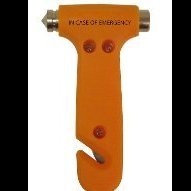What's a stolen neutral and how to fix it.
-
Recently Browsing 0 members
- No registered users viewing this page.
-
Topics
-
-
Popular Contributors
-
-
Latest posts...
-
15
Crime Tourist Fined 5,000 Baht After Driving Jeep Onto Kamala Beach & Getting Stuck
Thought he was driving among sand dunes back home? -
31
Report Drive Drunk, Lose Your Car: Thailand’s OAG Pushes Tough New Proposal
Or my gf, After all the hassle here in LOS to sell my car, I have already decided to put each successor car in her name, also with reaching a certain age it is easier for her. -
99
Trump Shifts Deportation Focus, Pausing Raids on Farms, Hotels and Eateries
https://www.npr.org/2025/05/19/nx-s1-5397332/america-has-plenty-of-open-manufacturing-jobs-companies-say-they-cant-fill-them -
8
Accident Police Colonel Flees Scene After Crashing into Vehicle & Stall in Chonburi
Policemen are reacting as "normal" Thais. To make a runner is very common and popular even in HiSos -
46
The locals are fed up with the annoying tourists.
Sounds like the sort of thing that old bogan, the GOAT would have said. Couldn't possibly be you though, could it?..... -
0
Kasikorn KPLUS App error - "The system is unable to process your request at this time"
For about the last 30 minutes I have been getting the above error. It occurs when I try to display quick balance to transfer a small amount of money or change the daily transaction limits. Earlier this morning it was all working fine, when I was able to do all of the above nornally. I've tried switching wifi off so it uses my registered sim card and also tried rebooting the phone. Anyone else experiencing this?
-
-
Popular in The Pub






.thumb.jpeg.d2d19a66404642fd9ff62d6262fd153e.jpeg)



.thumb.jpg.3ee24d9400fb02605ea21bc13b1bf901.jpg)

Recommended Posts
Create an account or sign in to comment
You need to be a member in order to leave a comment
Create an account
Sign up for a new account in our community. It's easy!
Register a new accountSign in
Already have an account? Sign in here.
Sign In Now